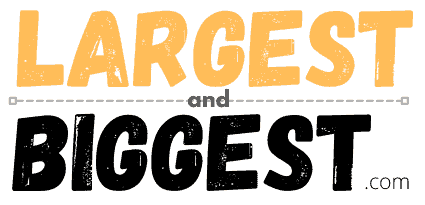Deloitte is one of the largest professional services firms in the world. It is a member of the “Big Four” accounting firms, along with PwC, EY, and KPMG. These firms are considered the largest and most prestigious in the accounting industry, and they offer a wide range of services including audit, consulting, tax, and legal advice to clients around the globe. In terms of revenue, Deloitte is the largest of the Big Four firms, with 2020 global revenue of approximately $45 billion. However, there are other professional services firms that are larger in terms of revenue or number of employees, such as Accenture and McKinsey & Company.
Is Deloitte one of the biggest companies in the world?
Deloitte is a large professional services firm, but it is not among the largest companies in the world in terms of revenue or market capitalization. Deloitte is a member of the “Big Four” accounting firms, which are among the largest and most prestigious firms in the accounting industry. In terms of revenue, Deloitte is the largest of the Big Four firms, with 2020 global revenue of approximately $45 billion. However, there are other companies that are larger in terms of revenue or market capitalization, such as Walmart, ExxonMobil, and Apple. These companies are typically classified as multinational corporations or “mega-cap” companies, and they operate in a variety of industries including retail, energy, and technology.
Who is bigger, PwC or Deloitte?
Deloitte and PwC are both large professional services firms and are members of the “Big Four” accounting firms, along with EY and KPMG. These firms are considered the largest and most prestigious in the accounting industry, and they offer a wide range of services including audit, consulting, tax, and legal advice to clients around the globe. In terms of revenue, Deloitte is the largest of the Big Four firms, with 2020 global revenue of approximately $45 billion. PwC is the second largest of the Big Four, with 2020 global revenue of approximately $43 billion. Both firms are among the largest professional services firms in the world, and they have a strong presence in many countries around the globe.PwC is the most valuable and prestigious of the Big Four, with a long-standing audit client base. Deloitte is just a little smaller than PwC in terms of revenue. It makes less money from auditing services and more from consulting.
Is Deloitte a big company?
Deloitte is a large professional services firm that is one of the largest and most prestigious firms in the accounting industry. Deloitte is a member of the “Big Four” accounting firms, along with PwC, EY, and KPMG. These firms are considered the largest and most prestigious in the accounting industry, and they offer a wide range of services including audit, consulting, tax, and legal advice to clients around the globe. In terms of revenue, Deloitte is the largest of the Big Four firms, with 2020 global revenue of approximately $45 billion. Deloitte has a strong presence in many countries around the world and employs over 312,000 people globally.The Big Four accounting companies (Deloitte, PricewaterhouseCoopers, KPMG, and Ernst & Young) are all large professional public accounting firms offering a variety of services including audit, financial advising, taxation, consulting, risk advisory, and actuarial services.
Deloitte is a large professional services firm that is one of the largest and most prestigious firms in the accounting industry. Deloitte is a member of the “Big Four” accounting firms, along with PwC, EY, and KPMG. These firms are considered the largest and most prestigious in the accounting industry, and they offer a wide range of services including audit, consulting, tax, and legal advice to clients around the globe. In terms of revenue, Deloitte is the largest of the Big Four firms, with 2020 global revenue of approximately $45 billion. Deloitte has a strong presence in many countries around the world and employs over 312,000 people globally.What are the Big 4 financial firms?
The Big Four are Deloitte, Ernst & Young (EY), PricewaterhouseCoopers (PwC), and Klynveld Peat Marwick Goerdeler (KPMG). Aside from auditing services, the Big Four provide tax and management consulting, valuation, market research, assurance, and legal advice.
Is it hard to get a job at Deloitte?
Deloitte is a large and highly respected professional services firm that is known for hiring top talent. As with any competitive job market, it can be challenging to secure a job at Deloitte or any other highly sought-after employer. However, there are a number of things you can do to increase your chances of getting a job at Deloitte. Here are some suggestions:
Develop your skills and experience: Deloitte looks for candidates with strong technical skills, as well as leadership, communication, and problem-solving abilities. Look for ways to gain relevant experience and skills, such as internships, part-time jobs, or volunteering.
Research Deloitte’s values and culture: Deloitte values diversity, inclusivity, and ethical behavior, and it is important to understand these values and how they fit with your own career goals and values.
Tailor your application to Deloitte: When applying for a job at Deloitte, be sure to tailor your resume and cover letter to the specific role and requirements of the job. Highlight your relevant skills and experience and explain how they align with Deloitte’s values and culture.
Network and build relationships: Deloitte often hires through personal connections and referrals, so networking and building relationships with Deloitte employees and alumni can be helpful. Consider joining professional organizations or participating in events where Deloitte employees may be present.
Prepare for the interview: Deloitte interviews can be highly competitive, so it is important to prepare thoroughly. Research the company, the role you are applying for, and the interviewer, and practice your answers to common interview questions.
What is the Green Dot in Deloitte?
The Green Dot is a symbol that is used by Deloitte to represent the firm’s commitment to sustainability and responsible business practices. The Green Dot is a part of Deloitte’s corporate social responsibility (CSR) initiatives, which focus on the environmental, social, and governance (ESG) impacts of the firm’s operations. The Green Dot represents Deloitte’s commitment to reducing its environmental footprint, promoting diversity and inclusion, and creating positive societal impacts. It is used in Deloitte’s branding and marketing materials, as well as in internal communications and initiatives. Deloitte’s CSR efforts are integrated into the firm’s business strategy and are designed to support the long-term sustainability and success of the firm and its stakeholders.
Is PwC better than Deloitte?
It is not appropriate to say that one professional services firm is “better” than another, as this is a subjective judgment that depends on individual preferences and priorities. Both Deloitte and PwC are large and highly respected professional services firms that are known for their expertise and quality of service. Deloitte and PwC are both members of the “Big Four” accounting firms, along with EY and KPMG. These firms are considered the largest and most prestigious in the accounting industry, and they offer a wide range of services including audit, consulting, tax, and legal advice to clients around the globe.
In terms of revenue, Deloitte is the largest of the Big Four firms, with 2020 global revenue of approximately $45 billion. PwC is the second largest of the Big Four, with 2020 global revenue of approximately $43 billion. Both firms have a strong presence in many countries around the world and employ thousands of professionals.
Ultimately, the decision of which firm to work for or do business with should be based on a variety of factors, including the firm’s reputation, services offered, culture, and fit with your own goals and values. It is important to do your own research and consider your own priorities when evaluating professional services firms.
Is Deloitte prestigious?
Deloitte is a large and highly respected professional services firm that is known for its expertise and quality of service. Deloitte is a member of the “Big Four” accounting firms, along with PwC, EY, and KPMG. These firms are considered the largest and most prestigious in the accounting industry, and they offer a wide range of services including audit, consulting, tax, and legal advice to clients around the globe.
Deloitte has a strong reputation and is widely recognized as a leader in the professional services industry. The firm has a long history of working with top organizations and has a global client base that includes many Fortune 500 companies. Deloitte is also known for its innovation and thought leadership, and it frequently publishes research and insights on a variety of topics that are of interest to business professionals.
In addition to its reputation and expertise, Deloitte is also known for its commitment to diversity, inclusivity, and ethical business practices. These values are reflected in the firm’s corporate social responsibility (CSR) initiatives, which focus on the environmental, social, and governance (ESG) impacts of the firm’s operations. Deloitte’s CSR efforts are integrated into the firm’s business strategy and are designed to support the long-term sustainability and success of the firm and its stakeholders.
Is EY better than Deloitte?
It is not appropriate to say that one professional services firm is “better” than another, as this is a subjective judgment that depends on individual preferences and priorities. Both Deloitte and EY are large and highly respected professional services firms that are known for their expertise and quality of service. Deloitte and EY are both members of the “Big Four” accounting firms, along with PwC and KPMG. These firms are considered the largest and most prestigious in the accounting industry, and they offer a wide range of services including audit, consulting, tax, and legal advice to clients around the globe.
In terms of revenue, Deloitte is the largest of the Big Four firms, with 2020 global revenue of approximately $45 billion. EY is the third largest of the Big Four, with 2020 global revenue of approximately $37 billion. Both firms have a strong presence in many countries around the world and employ thousands of professionals.
Ultimately, the decision of which firm to work for or do business with should be based on a variety of factors, including the firm’s reputation, services offered, culture, and fit with your own goals and values. It is important to do your own research and consider your own priorities when evaluating professional services firms.
Why are the big 4 called the Big 4?
The “Big Four” accounting firms are so called because they are the four largest and most prestigious firms in the accounting industry. The Big Four firms are Deloitte, PwC, EY, and KPMG. These firms are considered the largest in the industry in terms of revenue, number of employees, and global reach.
The term “Big Four” has been used to refer to these firms for many years, and it is thought to have originated in the late 1800s or early 1900s. At that time, there were a number of large accounting firms operating in the United States, but the four largest firms emerged as the most dominant and influential. Over time, the term “Big Four” became commonly used to refer to these four firms, and it has continued to be used to this day.
The Big Four firms offer a wide range of services including audit, consulting, tax, and legal advice to clients around the globe. They have a strong presence in many countries around the world and work with a diverse range of clients, including Fortune 500 companies, government agencies, and non-profit organizations.
Is McKinsey a big 4?
No, McKinsey & Company is not a member of the “Big Four” accounting firms. The Big Four firms are Deloitte, PwC, EY, and KPMG, and they are considered the largest and most prestigious firms in the accounting industry. McKinsey & Company is a separate professional services firm that is known for its expertise in management consulting.
McKinsey & Company was founded in 1926 and has since become one of the most influential consulting firms in the world. The firm works with organizations across a variety of industries and sectors, including private companies, governments, and non-profit organizations. McKinsey & Company is known for its rigorous and analytical approach to problem-solving and has a reputation for producing high-quality research and insights. While McKinsey & Company is not a member of the Big Four, it is a large and highly respected firm that is known for its expertise and quality of service.
Is working at Deloitte worth it?
Whether or not working at Deloitte is “worth it” depends on your individual goals, values, and priorities. Deloitte is a large and highly respected professional services firm that is known for its expertise and quality of service. Deloitte is a member of the “Big Four” accounting firms, along with PwC, EY, and KPMG. These firms are considered the largest and most prestigious in the accounting industry, and they offer a wide range of services including audit, consulting, tax, and legal advice to clients around the globe.
There are many benefits to working at Deloitte, including the opportunity to work with top clients, access to training and professional development resources, and the chance to be part of a diverse and inclusive culture. Deloitte also offers competitive compensation and benefits packages to its employees.
However, it is important to be aware that working at Deloitte, or any other professional services firm, can be demanding and may require long hours and travel. It is important to carefully consider your own goals and priorities and whether a career at Deloitte aligns with those before deciding whether it is worth it for you.
How did the Big 8 become the Big 4?
The “Big Four” accounting firms are Deloitte, PwC, EY, and KPMG. These firms are considered the largest and most prestigious in the accounting industry, and they offer a wide range of services including audit, consulting, tax, and legal advice to clients around the globe. The term “Big Four” has been used to refer to these firms for many years, and it is thought to have originated in the late 1800s or early 1900s.
Prior to the late 1900s, there were a number of large accounting firms operating in the United States, and the term “Big Eight” was used to refer to the eight largest firms. These firms were Arthur Andersen, Coopers & Lybrand, Ernst & Whinney, Deloitte Haskins & Sells, Peat Marwick Mitchell, Price Waterhouse, Touche Ross, and Arthur Young.
In the late 1980s and early 1990s, several of the Big Eight firms merged or were acquired by other firms, resulting in the consolidation of the industry and the emergence of the current Big Four. In 2002, Arthur Andersen, which was one of the original Big Eight firms, was forced to dissolve as a result of its involvement in the Enron scandal. This further contributed to the consolidation of the industry and solidified the dominance of the current Big Four firms.







